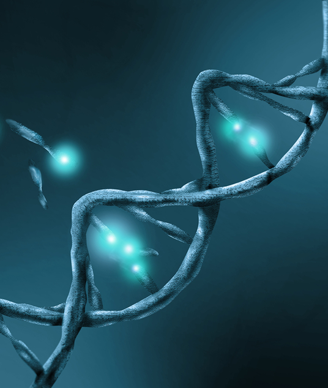Beyond BRCA: Multi-Gene Testing for Breast and Ovarian Cancer Risk
Testing women for non-BRCA gene mutations that can confer breast or ovarian cancer risk has clinical management consequences for both the women and their family members.
Image © Crystal Eye Studio / Shutterstock.com

Testing women for non-BRCA gene mutations that can confer risk of breast or ovarian cancer has clinical management consequences for both the women and their family members, according to a new study published in JAMA Oncology.
With advances in sequencing technologies, genetic testing is now expanding beyond BRCA to multi-gene genetic tests. Yet, it is not clear whether such screening for other known genes linked to hereditary cancer is clinically useful.
To analyze the utility of identifying these additional risk mutations, Andrea Desmond, BS, and Leif W. Ellisen, MD, PhD, both of the Massachusetts General Hospital Cancer Center in Boston, and colleagues performed multi-gene panel testing on 1,046 women at three academic centers between 2001 and 2014. All participants had been referred for genetic counseling for ovarian or breast cancer predisposition and had tested negative for a deleterious BRCA mutation. Eighty-three percent of the women had a personal history of either breast or ovarian cancer.
Two of the academic centers on study used the 29-gene hereditary cancer syndromes test from Invitae and one center employed the 25-gene myRisk test from Myriad Genetics.
Forty of the women (3.8%) were found to have a deleterious mutation that conferred cancer risk.
After inclusion of an additional 23 women who also tested positive for at least one deleterious non-BRCA mutation, clinicians considered further cancer screening and prevention measures for 52% (33 of 63) of the women based on current guidelines. “These recommendations are above and beyond those based on personal and family history alone,” wrote the study authors.
The multi-panel genetic testing was also considered for first-degree relatives of 72% of these women (42 of 58).
Of the 63 mutation-positive women, 20 (32%) had a high-risk mutation for which there are detailed National Comprehensive Cancer Network (NCCN) management guidelines. Forty of the 63 (63%) women had a low- or moderate- risk mutation. According to the authors, the greatest effect of identification of a low- or moderate-risk mutation was not on the patient but on the patient’s family members who then required testing.
“Multi-gene testing is rapidly becoming the norm for genetic cancer risk assessment. We must continue to assess the effect of such testing on clinical care and patient experience and work to provide meaningful guidelines for cancer preventive care for those with less common genetic findings,” wrote Elizabeth M. Swisher, MD, of the department of obstetrics and gynecology at the University of Washington Medical Center in Seattle, in a commentary accompanying the study.